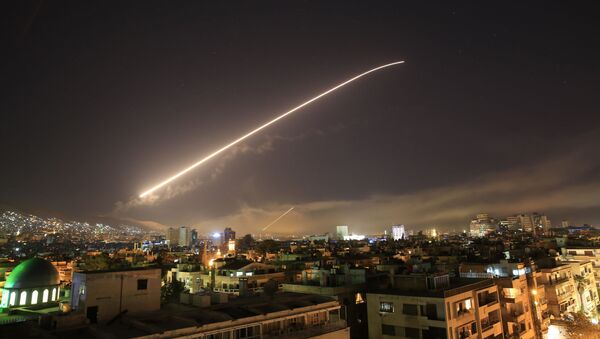Sputnik: we’re hearing more and more about the formation of an ‘Arab coalition’ to enter Syria and, according to reports, combat terrorist groups and repel ‘Iranian influence.’ Yet, considering that the architects of the plan – such as Saudi Arabia and the United Arab Emirates – are bogged down in Yemen, how likely is it that this will actually happen?
Steve Topple: I don’t think we’re going to see this come to fruition myself, personally. As you quite rightly highlight, Saudi Arabia is currently bogged down in the conflict in Yemen, and with the situation as it happened last week with the situation as it happened last week with the Syrian government retaking control of Douma I think that issue is slowly being put to bed if you like. So I think they’re slightly overplaying their hand and overstating their position as it were.
Sputnik: Israel has reportedly binned plans to send warplanes to a joint military exercise with the US amid concerns of an impending Iranian attack. It’s looking as if a showdown between Tel Aviv and Tehran in Syria could become possible – what do you see happening with this?
Steve Topple: Look this has always been on the cards. I wrote over two years ago now that what we were witnessing in Syria was the first world war, if you like, of the twenty first century where you have the west and its allies standing off against Russia, Iran and its allies. I think while the situation seems to have died down as I’ve previously said in terms of Assad’s regime taking control of the majority of Syria, this is not over by a long shot and we saw that with the evidence of the US, French and UK airstrikes in response to the alleged chemical weapons attack and I think geopolitically this is going to continue to play out. There’s still this power struggle going on for Syria if you like, for numerous reasons, as I say geopolitical, not least it’s to do with oil and gas, it’s to do with control its to do with the Shia and Sunni branches of Islam and it’s going to run and run still. So I think if there is any offensive by Israel and the US it’s quite likely this is going to play out for some time.
Sputnik: So do you see the US as being in Syria for the long haul now, or do you see it leaving soon as president Trump said that he wanted to before last weekend's ’Western airstrikes?
Steve Topple: It was quite interesting actually wasn’t it? Trump on the one hand saying ‘we’ve done our job’ with ISIL in Syria we’re going to withdraw, then suddenly the situation escalated. I think we’re going to see is the continuation if you like of kind of soft power moves. I think the West has made the statement it wanted to make with the airstrikes it made on Syria last weekend and now I think it’s going to be more soft power actions if you like. There’s going to be a lot of propaganda a lot of foe diplomacy but I think again, like I said, it’s going to continue to play out because there’s too much at stake. There’s too much at stake for all players involved in Syria.
The views and opinions expressed in this article are those of the speaker and do not necessarily reflect those of Sputnik.



